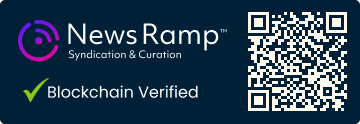Digital Nomadism Reshapes the US Labor Market: Trends, Challenges, and Opportunities

Summary
Full Article
The US labor market is witnessing a significant shift towards digital nomadism, with 18.1 million workers, or 11% of the workforce, now identifying as digital nomads, according to the 2024 State of Independence Report by MBO Partners. This marks a 147% growth since 2019, transitioning from a niche lifestyle to a mainstream work movement. The report underscores the urgent need for employers to adapt to this evolving work paradigm to mitigate regulatory, tax, compliance, and cybersecurity risks, especially since 36% of digital nomads operate without formal employer consent.
Miles Everson, CEO of MBO Partners, highlights the necessity for organizations to attract top talent by accommodating their preferences for flexibility in work location and time. The adoption of formal policies to engage and manage remote and nomadic workers is becoming a standard practice to not only reduce risks but also to appeal to highly sought-after professionals. The report identifies emerging trends such as 'slomading,' where nomads choose to stay longer in fewer locations to enhance social life and productivity, and 'tethered nomading,' with 51% planning to travel exclusively within the US, up from 42% in 2022.
However, the rise of digital nomadism presents challenges, including the existence of 'hidden' corporate digital nomads—employees working remotely without their company's knowledge. This scenario poses legal and cybersecurity risks, emphasizing the importance of clear and enforceable remote work policies. With 21 million workers aspiring to become digital nomads and another 45 million considering it, the trend is poised for continued growth, necessitating corporate and regulatory adaptation.
Digital nomadism is redefining work-life balance, with nomads acting as brand ambassadors for their employers by showcasing the benefits of flexible work arrangements. Companies that align work projects with employees' travel plans can foster environments that boost both productivity and satisfaction. The findings call for a new social contract between workers and corporations, advocating for a reevaluation of workers' rights and work arrangements to accommodate the mobile workforce's needs while minimizing regulatory burdens.
For businesses aiming to remain competitive and mitigate risks associated with digital nomadism, developing formal policies is imperative. Embracing these new work paradigms offers companies a strategic advantage in attracting and retaining talent in a global and increasingly mobile job market.

This story is based on an article that was registered on the blockchain. The original source content used for this article is located at News Direct
Article Control ID: 92539